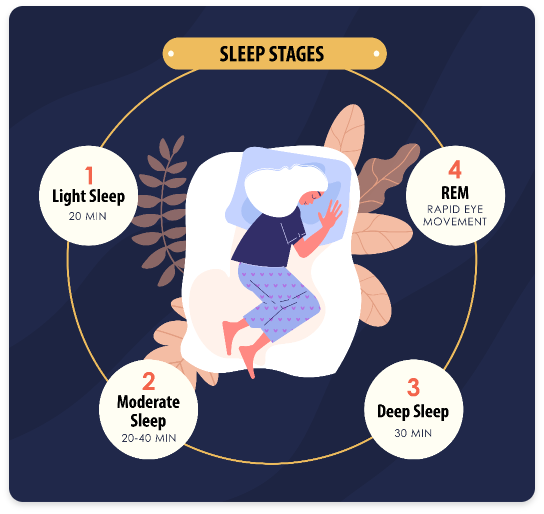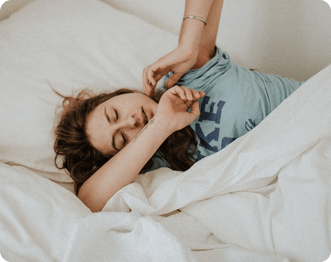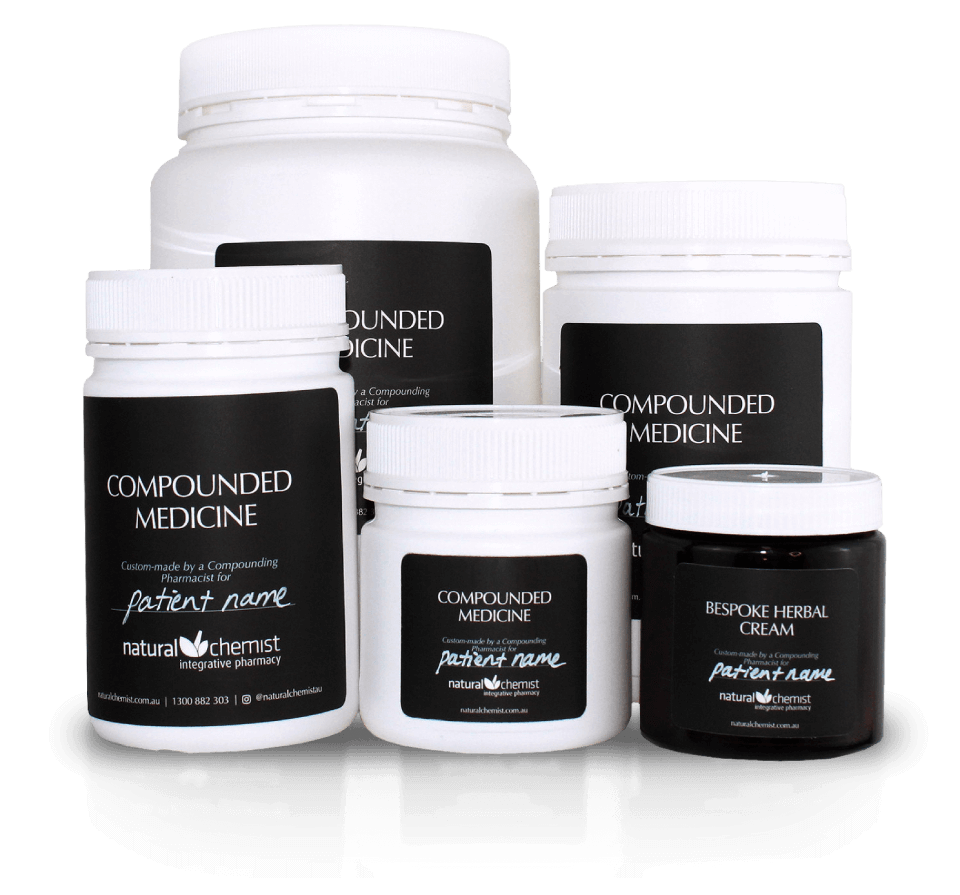Sleep Management
While we sleep, many important functions take place that allow the body to recover and repair. For most people their sleep cycle satisfies their sleep needs and causes few problems. However, factors such as lifestyle commitments, stressful events, nutritional deficiencies and many physical conditions can alter the balance.
An insufficient amount of quality sleep can lead to mood shifts, hormonal imbalances, anxiety, attention lapses, reduced cognition and increased risk for certain diseases and medical conditions.
Natural Clinic Clinical Guide for your sleepless nights
Book your appointment with a qualified practitioner who will…
Work with you to discover imbalances in your neurotransmitters and barriers to quality sleep
Reveal nutrient deficiencies contributing to your sleepless nights
Access to functional testing for clear and concise answers to your sleep questions
Provide expert dietary and lifestyle coaching to optimize your sleep
Give you access to practitioner-grade nutritional and herbal medicine and compounded medicines tailored specifically for you
Book now for rest.
Book AppointmentTo learn more about how to optimise your sleep and reduce risks associated with poor sleep,
read on for our Natural Clinic clinical guide for your sleepless nights!
Natural Clinic Sleep Management Consult: $75
Natural Clinic Clinical Guide for your sleepless nights

WHY IS SLEEP SO IMPORTANT?
This guide provides general advice on how to optimize your sleep. For more complex and chronic sleep disorders, we advise booking in with one of our clinical Naturopaths for a more tailored, individualized approach.
The way you feel when you are awake depends in part on what happens while you are sleeping. Sleep is an essential function that allows the body and mind to recharge, leaving you refreshed and alert. Our sleep is regulated by the body’s circadian rhythm, with the natural light and dark cycles maintaining regulatory control of our sleep-wake cycles.
In the context of a normal circadian rhythm your sleep architecture consists of 80-to-120-minute sleep cycles that repeat three to five times across the night. This will normally result in 7-8 hours of sleep per night in healthy adults.
ACROSS THE NIGHT, THERE ARE FOUR PROGRESSIVE STAGES OF SLEEP THAT ALL PLAY AN IMPORTANT AND UNIQUE ROLE IN YOUR HEALTH:
This is the lightest of all stages, where one transitions from wakefulness to sleep.
Rhythmic brain waves begin. Heart rate and body temperature begin to drop. This stage is thought to play an important role in memory consolidation.
A deeper level of sleep comprised of slow-wave sleep (SWS). This stage is where the body begins to regrow tissue, repair and build bone and muscle and strengthen the immune system.
This is the deepest level of sleep, also known as REM sleep, where the majority of cerebral repair and restoration occurs. REM is where dreaming begins and usually starts 90 minutes after falling asleep and lasts up to 10 minutes initially with each REM cycle increasing in duration across the night. REM sleep is also where the majority of male testosterone is synthesized, proving important in male health.
Spending adequate time in all sleep cycles ensures optimal health.

Symptoms of chronic sleep deprivation
BARRIERS TO GOOD SLEEP
Creating an environment that is conducive to sleep is important, whether that be externally or biochemically:
- Reducing exposure to blue light, iPhone, iPad and computers to avoid blocking the synthesis of melatonin (important in your circadian rhythm).
- Addressing nutritional deficiencies which may be affecting the neurotransmitters important for your sleep-wake cycles.
Identifying your key barriers to a good night's sleep is an important step towards rest.
- Chronic / severe stress
- Circadian rhythm disruption
- Pain
- Blue light
- Coffee / alcohol
- Anxiety
- Thyroid function
- Restless legs
- Poor sleep hygiene practices
- Nutritional deficiencies
- Mood disorders
- Certain medications

Chat to one of our clinical naturopaths today to discover what your underlying drivers of poor sleep may be.
Book a ConsultHow your diet plays a role
Increasing variety in your diet is key to ensuring you're getting all the necessary nutrients and minerals to facilitate healthy biochemical processes for sleep.
How your lifestyle plays a role
Stressful, busy lives are often the greatest barrier to restful sleep. If anxiety and stress are high, your nervous system may be in overdrive which can lead to a dysregulated circadian rhythm. Constant activation of your sympathetic nervous system can hinder your ability to rest. Implementing some key lifestyle adjustments and routine changes can help your body find better sleep.
Support a healthy circadian rhythm by addressing excessive blue light exposure and increasing natural light exposure
- Avoid screens at least 1 hour before bed
- Use black out curtains while sleeping
- Purchase a natural light alarm clock to wake naturally with the sunrise
- Morning/ daytime exposure to natural light - at least 30 minutes of sunshine on your skin each morning.
Increase daytime activity, but avoid excessive exercise 3-4 hours before bed.
Consider sleep sounds – binaural beats help facilitate slow brain waves to increase deeper sleep cycles.
Reduce / limit napping throughout the day
The addition of herbal tea including lemon balm, lavender, chamomile or skullcap to your nighttime routine can gently nudge your nervous system into a restful state.

Click below to find out what can promote and prevent sleep

Pharmaceutical & conventional treatment for poor sleep
- Melatonin
- Benzodiazepine receptor agonists
- Benzodiazepine sedative-hypnotics
- Dopamine agonists
- Tri-cyclic Anti-depressants
Natural treatments to optimize your sleep
Important in several neurobiological mechanisms, magnesium has a major influence on our stress response. Mg assists by modulating the effects on GABA receptor transmissions – an inhibitory neurotransmitter helpful in calming down the nervous system and promoting sleep.
Inhibitory neurotransmitter. Reduces feelings of anxiety, stress and promotes the initiation of the sleep cycle via its ability to encourage relaxation.
Improves sleep quality as well as reducing stress markers through regulating stress hormones, such as cortisol.
For neuromuscular pain support, PEA (palmitoylethanolamine) downregulates pain receptors helping aid sleep. Useful in individuals with chronic pain conditions interrupting sleep quality.
A herb useful in reducing anxiety, depression and insomnia. Stimulates the release of relaxing neurotransmitters promoting the ability to initiate and enhance sleep quality.
Reduces the body’s flight or fight response, calming the nervous system and the mind. Great for individuals who have a racing mind before bed. Stimulates the release of GABA ,an inhibitory neurotransmitter mentioned above.
Reduces feelings of anxiety, pain and acts as a sedative. California poppy is great for individuals who experience muscle tension and pain.

If you suspect your sleep challenges are secondary to an underlying health condition, we recommend speaking to your doctor and booking in a full consultation with our clinical naturopath to ensure thorough investigation takes place for safe and effective prescribing.
Nutritional Compound for Sleep
Tired of taking multiple supplements for good sleep?
Let us narrow it down to one that works. A custom-made, compounded product formulated only for you.
Insomnia and poor sleep can have multiple causes and that’s why you often need to use multiple products.
We can compound ONE product that contains all the ingredients you need for healthy sleep, at therapeutic dosages specific to your health needs.

The benefits:
- Ease & convenience of taking only one supplement
- Your body is unique to you. Your medicine should also be unique to you.
- Avoid the inconcenience of supplements in your protocol running out at different times.
- Dosing is specific to your metabolic needs & deficiencies.
- Formula can be adjusted over time to support each stage of the healing process.

















